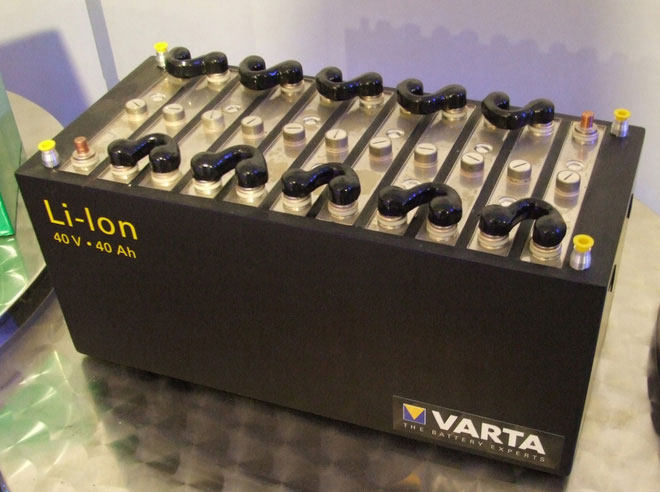Canadian companies claim to recycle 100% of Li-ion batteries, not to waste any materials
By eloquent claims, Li-Cycle will change the energy storage industry with unprecedented efficient battery recycling technology.
Li-Cycle is an energy storage technology research company in Canada, only 3 years old but has made a bold statement: it can create eco-friendly lithium-ion batteries School, when 80-100% of the material can be recycled. In response to the Energy-Storage, Kunal Phalpher news site from the Li-Cycle, the battery recycling process in both Europe and China relies on metallurgy - that is, using heat to separate batteries and recycle them. about 30-40% of materials.

Li-Cycle can recycle 80-100% of the materials that make up the battery.
The Li-Cycle battery recycling process is very different:
The first step involves reducing the size of the battery, chopping the battery and removing unnecessary plastic and metal . "The end result will be that the electrode materials have been shredded, that's the real value of the battery ," Phalpher said.
Even the stored battery can be chopped, which means that the battery is fully discharged before processing.
The second step in recycling is chemical treatment and metallurgy . ' We will take chopped metal and in turn take out its composition, which will be lithium carbonate, lithium, cobalt, copper, aluminum, graphite, and iron if any '.
According to Phalpher, existing battery recycling plants ' use a metallurgical process that does not yield any lithium. '
Clearly, the process of handling new batteries is aimed at portable electronic devices and electric vehicles; That's right, when the amount of cobalt in each device in these two sectors is very large. In addition, large-sized energy storage devices are new technologies developed, most of them are not fully depreciated, so it is impossible to consider recycling.
' The most eye-catching element is cobalt, nickel, lithium, and even a certain amount of copper is of high value. That's our main source of revenue when the end of the process , 'Phalpher said, once again emphasizing on receiving up to 80-100% of the material used to make batteries.
Currently, the capacity of the chopped battery factory in Canada is 5,000 tons, however, the second phase of the plant has not reached the range yet, it should continue to be developed so that the entire recycling chain is most effective.
- Nissan reuses electric car batteries to light roads
- Successfully manufactured organic solar cells from plants
- Produces extremely high performance batteries from the things we still throw away every day
- Sugar made from waste plastic, life expectancy is 10 times higher
- Recycle lead from automobile batteries into solar panels
- Recycle space waste, impossible thought possible!
- MR6: Road carpet concrete from waste plastic waste
- Beer waste can help regenerate bone
- Magic materials that make you 'squint'
- America has found a way to turn plastic waste into cosmetics
- New solution for bendable electronic devices in the future
- New lithium battery safer
- Turn the cigarette filter into a phone battery
- Turn plastic waste into a racing car
 Is the magnetic North Pole shift dangerous to humanity?
Is the magnetic North Pole shift dangerous to humanity? Washington legalizes the recycling of human bodies into fertilizer
Washington legalizes the recycling of human bodies into fertilizer Lightning stone - the mysterious guest
Lightning stone - the mysterious guest Stunned by the mysterious sunset, strange appearance
Stunned by the mysterious sunset, strange appearance